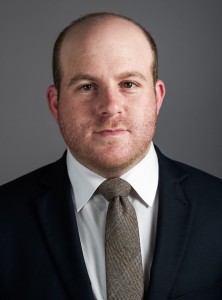
By Kevin Gres, Esq., Law Offices of Kevin Gres
Johnny Doe is being sued. As your initial discovery deadlines slowly approach, you call up Johnny to discuss crafting responses. After a few minutes of pleasantries, Johnny tells you he was recently indicted by a grand jury and has a court date quickly approaching. Talk about throwing a monkey wrench into the mix. How does this impact your case? What are the larger ramifications?
You do not need to be a criminal defense attorney well-versed in constitutional criminal procedure to navigate this. Any civil attorney, no matter the area of practice, should be aware of the perils and pitfalls of parallel civil and criminal proceedings. This article will provide you with a brief overview of the issues and some of the remedies when confronted with this situation.
There are two major obstacles in parallel proceedings, the first, unwittingly waiving Johnny’s Fifth Amendment rights in your civil case, and two, having Johnny make incriminating admissions even if his rights are not legally waived.
Johnny can unwittingly waive his right to remain silent if he answers a complaint with specific denials under oath, responds to special interrogatories, requests for admissions, or even requests for production. If you don’t spot the issue early enough, trying to assert the Fifth Amendment midway through the discovery process will likely result in a successful motion to compel by opposing counsel. If waived, opposing counsel will have a field day at Johnny’s deposition, and there will be very little you can do about it.
But you’re smarter than that. You caught it early, and Johnny will not be waiving his rights. Pat yourself on the back…but don’t assume you’re out of the minefield quite yet.
Many experienced civil attorneys believe that Johnny should be as cooperative as possible without waiving. This is risky. Any admission made in the civil case, whether it results in a waiver or not, can still likely be used in a future criminal proceeding. Under state and federal rules of evidence, a defendant’s statement is admissible even if the defendant asserts his Fifth Amendment right and elects not to testify at his trial. If the statement is relevant and has proper foundation, the jury will hear it and the damage will be done.
So, you invoke, and you invoke hard. You will quickly realize invoking is not all it is cracked up to be. Depending on the nature of the case, successfully invoking your client’s Fifth Amendment rights can prevent you from meaningfully defending your client from the plaintiff’s claims. Discovery comes to a screeching halt. Invoking could even result in an adverse inference jury instruction at trial. Your client is on the horns of a rather prickly dilemma. What to do?
Courts are sensitive to the unfairness of Johnny having to choose between his freedom and his fortune, his rights and his riches. Johnny should petition the court to stay his civil case until the criminal case resolves. That would allow him to assert his Fifth Amendment right in his criminal case without sacrificing his defense in his civil case. Generally, courts look at six factors to determine whether a stay is appropriate, including: whether there is a common core of facts between the two actions, the interests of the plaintiff and burden on defendant, the interests of the court and public, and the status of the criminal case.
If the stay is denied, Johnny should at least request a temporary stay on discovery. If that is denied, a protective order on the discovery should be requested, so if prosecutors attempt to gain access to the discovery in the criminal case, his defense attorney will have a stronger objection.
There are many reasons why prosecutors love parallel proceedings. Civil discovery is often more encompassing than criminal discovery laws. There are depositions, admissions – things prosecutors can only dream of. In my time as a prosecutor, I would often dig through civil discovery, pull domestic violence restraining order transcripts from Stanley Mosk on my lunch hour, and subpoena all kinds of admissions. It was like taking a metal detector to a busy beach on a summer day.
No area of law is immune from potential criminal action. Often, a civil case is a treasure trove of incriminating information for law enforcement and prosecutors. But recognizing the issue and having the legal tools to navigate parallel proceedings gives you and Johnny a substantially higher likelihood of success in both of his cases.
BIO:
Kevin is a native Angeleno and attorney specializing in criminal defense. He worked as a prosecutor in Los Angeles, and then for the Law Offices of Donald Etra. Kevin now represents individuals and corporations under investigation or accused of crimes, including misdemeanors and felonies (emphasis on white collar/fraud), both state and federal.

